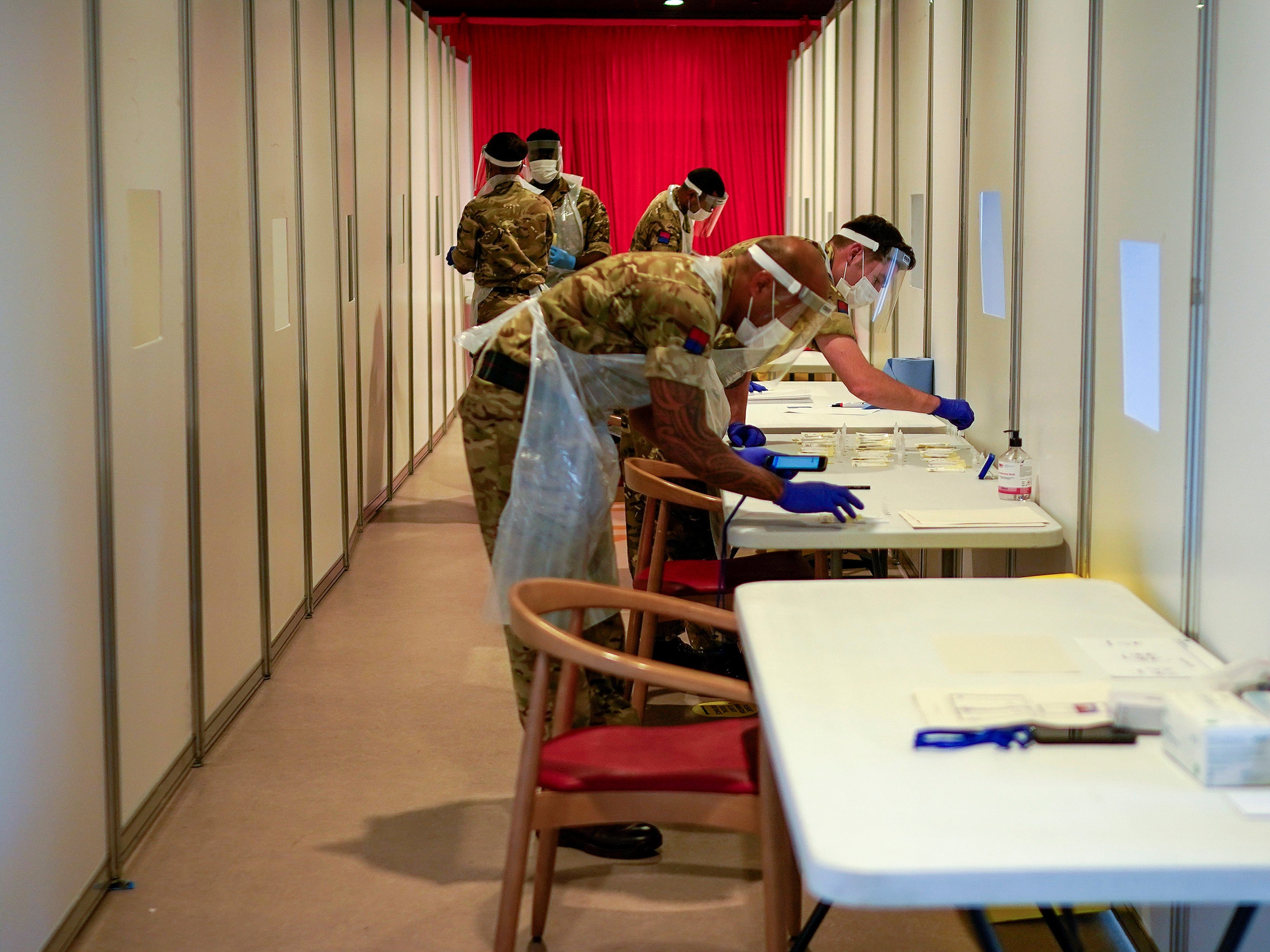Coronavirus: Liverpool mass testing missed 60 per cent of cases and didn’t impact on infection rates, report says
Now health bosses in city are scrambling to tell thousands queuing for Christmas Eve test: do not treat negative result as green light for ignoring restrictions

Your support helps us to tell the story
From reproductive rights to climate change to Big Tech, The Independent is on the ground when the story is developing. Whether it's investigating the financials of Elon Musk's pro-Trump PAC or producing our latest documentary, 'The A Word', which shines a light on the American women fighting for reproductive rights, we know how important it is to parse out the facts from the messaging.
At such a critical moment in US history, we need reporters on the ground. Your donation allows us to keep sending journalists to speak to both sides of the story.
The Independent is trusted by Americans across the entire political spectrum. And unlike many other quality news outlets, we choose not to lock Americans out of our reporting and analysis with paywalls. We believe quality journalism should be available to everyone, paid for by those who can afford it.
Your support makes all the difference.Rapid-result tests used during Liverpool’s much-heralded mass coronavirus testing pilot failed to detect 60 per cent of all positive cases, a new report says.
Some 25 per cent of the city’s 498,000 residents have been screened using lateral flow device tests which give results in about half an hour – with some 897 positive cases found.
But, in a study sample of 6,000 people who had both the LFT test and the gold-standard, lab-based PCR test, it was found the former picked up just two-thirds of positive cases identified by the latter.
The shortfall means “caution should be exercised" in how the tests are used in the future, the new study by researchers at Liverpool University said.
The conclusions came as large Christmas Eve queues formed at city testing sites with thousands of people apparently seeking to be screened ahead of seeing family.
It meant that health officials there have had to scramble to warn residents that a negative result should not be seen as definitive, and that social distancing and other restrictions must be adhered to over the festive period.
Their fear is that, if people are told they do not appear to have the bug, it may offer a false sense of security over the holiday period that could result in an explosion of cases in the new year.
"We are reminding people that a negative test is not a green pass to ignore social distancing, hand hygiene, the wearing of face coverings and all the other measures that are in place to prevent the spread of the virus,” said Matt Ashton, director of public health in the city.
"We are also asking people not to have vulnerable relatives around on Christmas Day, to help keep them safe. Covid is a Christmas gift you don’t want to give or receive.”
The findings of the new report – part of an interim analysis ahead of a full report in January – may now be seen as a warning ahead of government plans to roll out the LFTs to care homes and schools in the new year.
In a government-approved scheme, which has already started in some areas, families wanting to visit elderly residents in care homes will be able to have a test at the door and, if negative, go in to see their loved one. Teachers, meanwhile, will be asked to test pupils before admission to class.
But with the revelation that just two-fifths of cases were picked up in the Liverpool scheme, it raises the question of if such programmes will be fit for purpose.
“You can’t use this tests to reliably identify people who don’t have Covid,” Jon Deeks, professor of biostatistics at Birmingham University, told The Independent. “Entry to care homes is one of those circumstances. Schools is another. We now need to really challenge the illogic of this approach.”
The report contains further bad news for the government too: there is, it says, “no clear evidence that the introduction of mass testing in Liverpool impacted on Covid-19 cases or hospital admissions”.
Although cases there were driven down in November and December, that may have been a result of being the first region to go into tier three restrictions followed by the national lockdown, it indicates.
Assessing the conclusion, Paul Hunter, professor in medicine at the Norwich School of Medicine, University of East Anglia, said it did not seem as though the pilot had "much if any impact".
He said: "With the low overall take up rate, the even lower up take in populations with the higher infection rates and the poorer than expected sensitivity of the lateral flow test in use, I doubt that such as scheme as that piloted in Liverpool will have more than a marginal impact on the spread of the Covid-19 in the UK.”
The conclusions comes almost two months after experts told The Independent the tests were flawed and their lack of accuracy made them unfit for purpose.


Join our commenting forum
Join thought-provoking conversations, follow other Independent readers and see their replies
Comments